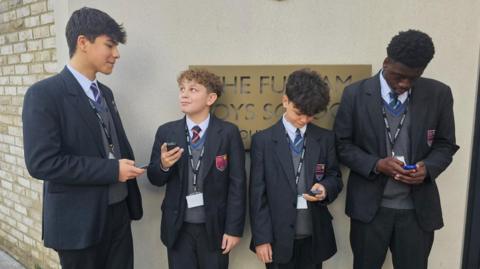Banning phones in schools is not linked to pupils getting higher grades or having better mental wellbeing, the first study of its kind suggests.
Students' sleep, classroom behaviour, exercise or how long they spend on their phones overall also seems to be no different for schools with phone bans and schools without, the academics found.
But they did find that spending longer on smartphones and social media in general was linked with worse results for all of those measures.
The first study in the world to look at school phone rules alongside measures of pupil health and education feeds into a fierce debate that has played out in homes and schools in recent years.


